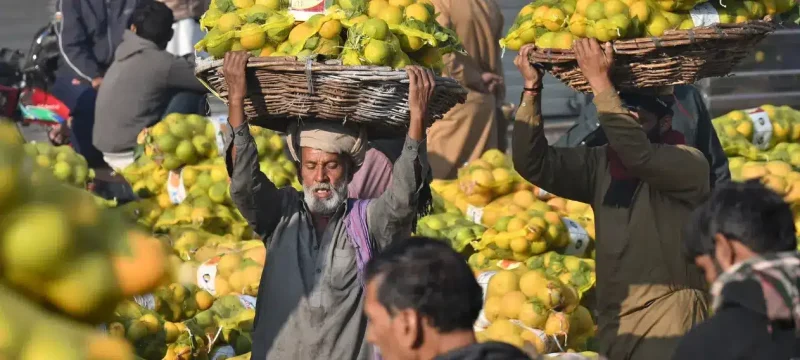As Pakistan enters the holy month of Ramadan, households are facing a significant surge in food prices, placing a heavy burden on their budgets and causing hardship for many.
On the first day of Ramadan, essential kitchen staples witnessed a staggering increase in prices, with items like capsicum (shimla mirch) reaching over Rs600/kg in Karachi, compared to its previous price of less than Rs200/kg. Despite the government’s temporary halt on the export of onions and bananas to stabilize their prices, the costs continued to rise in domestic markets.
Also Read: Challenges and Mitigation Strategies for Inflation in Pakistan’s Economy
Onion prices surged by up to 100%, reaching Rs250-300/kg, while bananas soared to Rs200/dozen or more, from Rs100-150/dozen just a week earlier. Similarly, veal prices rose by Rs200-300/kg to Rs1,400-1,500/kg on the first day of Ramadan.
Other food items such as melons, watermelons, apples, cabbage, carrots, potatoes, tomatoes, gram flour, brown chickpeas, white chickpeas, and mutton also witnessed significant price hikes.
According to Waheed Ahmed, the Patron-in-Chief of the All Pakistan Fruit and Vegetable Exporters, Importers and Merchants Association (PFVA), the market may see a decrease in onion prices in the coming days as traders are still purchasing onions for exports. However, he anticipated a notable drop in onion prices next month when the new crop arrives from Balochistan.
Ahmed noted a trend of food prices soaring in the initial week of Ramadan, followed by a gradual decrease in the following weeks. He emphasized the need to investigate why Pakistan shifted from being a net exporter to a net importer of food items, contributing to food insecurity in the country.
Regarding the government’s export ban, Ahmed expressed concerns about its effectiveness, suggesting that it could lead to rising unemployment in the agriculture sector and reduce foreign exchange reserves inflow. He called for prioritizing agriculture and investing in research and development to address climate change challenges, increase production, create employment opportunities, and boost foreign exchange reserves.









